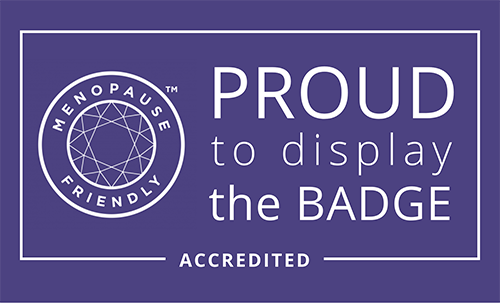Menopause Peer Support Network

We understand that menopause can be a challenging time, and we're here to offer a supportive space where you can connect with colleagues who are going through similar experiences. Whether you're experiencing peri-menopause, post-menopause, or supporting someone who is, our group is open to everyone.
Join us to share your stories, learn from others, and find comfort in knowing you're not alone. Together, we can navigate this journey with empathy, understanding, and mutual support, creating a supportive community where everyone feels heard, valued, and empowered.
The Menopause Peer Support Network aims to:
- Provide a safe and supportive environment for individuals experiencing menopause, including peri-menopause and post-menopause.
- Facilitate connections among colleagues to share experiences, advice, and coping strategies.
- Raise awareness about menopause and its impact on individuals and their work life.
- Promote inclusivity by welcoming all ages and genders, recognising that menopause affects not only those experiencing it directly but also those supporting them.
- Empower individuals with knowledge and resources to manage symptoms and improve overall wellbeing.
Contact
Please email:Menopause@lancashire.gov.uk if you would like more information or to request to speak to someone in person. Or join our friendly Teams peer support chat, to share your experiences, ask questions and learn from others going through similar challenges.
Events and training
Join our monthly 'lunch and learn', where we meet up online to watch a video from an expert speaker on a different subject related to menopause. There's an opportunity to stay on afterward for a chat if you want too. See the events page or e-mail Menopause@lancashire.gov.uk for more information.
Learn the facts about menopause, hear lived experiences from our colleagues, and discover where to access support, by signing up for Menopause Awareness training on LCC's e-learning platform Astute. Here you will find a session suitable for all colleagues and there's also an enhanced version specifically for those managing teams, which includes practical tips on how to approach supportive conversations about menopause and other health and wellbeing topics.
Check out our wellbeing courses that can help you on your menopause journey, including mindfulness, yoga, nutrition and sleep.
Further information and support
The Menopause guide is a great source of guidance and information, including information about symptoms and how they can impact work, what support you can expect from your manager, long-term health, risk assessment and workplace adjustments, talking to your manager, how to support others and trusted sources of further information and help.
The free and confidential employee assistance programme is available 24/7, 0800 0542 301 or look online: www.employeeassistance.org.uk (access code – lccsupport). You can access up to 6 sessions of counselling or Cognitive Behavioural Therapy which is a brief, non-medical approach that can be helpful for a range of health problems, including anxiety and stress, depressed mood, hot flushes and night sweats, sleep problems and fatigue (the British Menopause Society).
Webinar recordings
Menopause – a male leader's perspective
Hear from Mark Wynn on his experience of supporting others with symptoms of peri-menopause and menopause, both personally and in work. An open and insightful conversation that advocates best practice when providing support to our loved ones and colleagues and empowers those struggling with symptoms to feel safe to have open honest conversations about the impact.
Hear from staff talking about their lived experience of menopause and responses from our senior leaders to questions about how we can create a culture that makes LCC a place where it is easy to have open conversations around menopause and ask for support when it's needed.
Hear from GPs Dr Garima Dubey and Dr Preeti Shukla who both have a special interest in women's health. Preeti and Garima talk through what help someone can expect from their GP if they are struggling with menopause symptoms; the range of symptoms; how to prepare for their appointment to get the most from it; and what to do if someone's needs aren't met at the appointment.